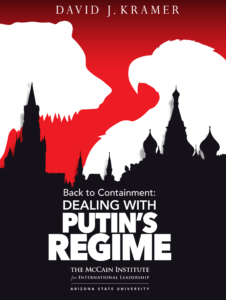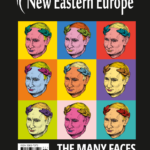The death of democracy is trumpeted today as loudly as the end of history once was, notes FT analyst Philip Stephens. But while democracies have their problems, it is a mistake is to imagine autocrats are somehow exempt from stresses and strains. Glance beyond the propaganda and it is evident despots have their own problems, he writes:
 Take Mr Putin. He should be at the top of his game. The Russian leader has secured a fourth presidential term. The Kremlin says he won 75 per cent of the ballots. His regime is built on billions siphoned off from the state. Opponents are tossed into jail or worse; oligarchs prosper or otherwise at the president’s pleasure. … Except things are not quite as they seem. Mr Putin’s inauguration in the gilded splendour of the Kremlin Palace had a certain hollowness. Where were the cheering crowds on the streets? Instead there are angry protests against a dismal economic record and growing societal ills. Even with an $80-a-barrel oil price, the trajectory is one of decline.
Take Mr Putin. He should be at the top of his game. The Russian leader has secured a fourth presidential term. The Kremlin says he won 75 per cent of the ballots. His regime is built on billions siphoned off from the state. Opponents are tossed into jail or worse; oligarchs prosper or otherwise at the president’s pleasure. … Except things are not quite as they seem. Mr Putin’s inauguration in the gilded splendour of the Kremlin Palace had a certain hollowness. Where were the cheering crowds on the streets? Instead there are angry protests against a dismal economic record and growing societal ills. Even with an $80-a-barrel oil price, the trajectory is one of decline.
 Which may explain why Putin is now casting around for an exit strategy, Stephens adds.
Which may explain why Putin is now casting around for an exit strategy, Stephens adds.
The “Putin Paradox” is the more he strengthens the Vertical, the weaker it becomes, says prominent analyst Vladimir Sokratilin (HT: Paul Goble’s Window on Eurasia). Yet Putin’s Russia remains a potent threat to western democracies, analysts suggest.
Russia’s election interference reflects a trend that blends premeditation with opportunism. To bolster resilience, countries must urgently share best practices and lessons learned, Carnegie analysts Erik Brattberg and Tim Maurer contend:
- Consider electoral systems as part of critical infrastructure, institutionalize preparations to protect election processes, and broaden activities to the subnational levels.
 Focus on resilience measures, for example, by conducting regular vulnerability analyses and developing contingency plans. Legal measures should be explored through an inclusive process.
Focus on resilience measures, for example, by conducting regular vulnerability analyses and developing contingency plans. Legal measures should be explored through an inclusive process.
- Issue public statements to deter threat actors and educate voters about disinformation campaigns.
- Train and educate political parties and campaigns to better protect against potential interference.
- Conduct government-media dialogue, encourage media to take voluntary protective measures, and engage social media companies in mitigating potential threats.
- Support international cooperation, particularly the sharing of lessons learned and best practices.
 The historian Richard Pipes maintained that Russia had a patrimonial tradition that prevented it from embracing democracy, Jacob Heilbrunn writes for the National Interest.
The historian Richard Pipes maintained that Russia had a patrimonial tradition that prevented it from embracing democracy, Jacob Heilbrunn writes for the National Interest.
But Pipes (above) also argued that in the absence of ‘strong lateral ties’ and an ‘explicit mandate of its citizens’, even the most ‘enduring’ authoritarian regime can collapse in a matter of days, James Sherr writes for Policy Exchange:
Russia’s legacy of autocratic rule not only influences the political system that is now synonymous with Vladimir Putin. It has become part of that system’s legitimacy. To the centuries old pillars of bureaucracy, police and army (reinforced once again by the Orthodox Church), Putin has added business – but business fused with power on a neo-patrimonial basis. Will this fusion prove to be a vindication of Pipes’s analysis or its refutation?







